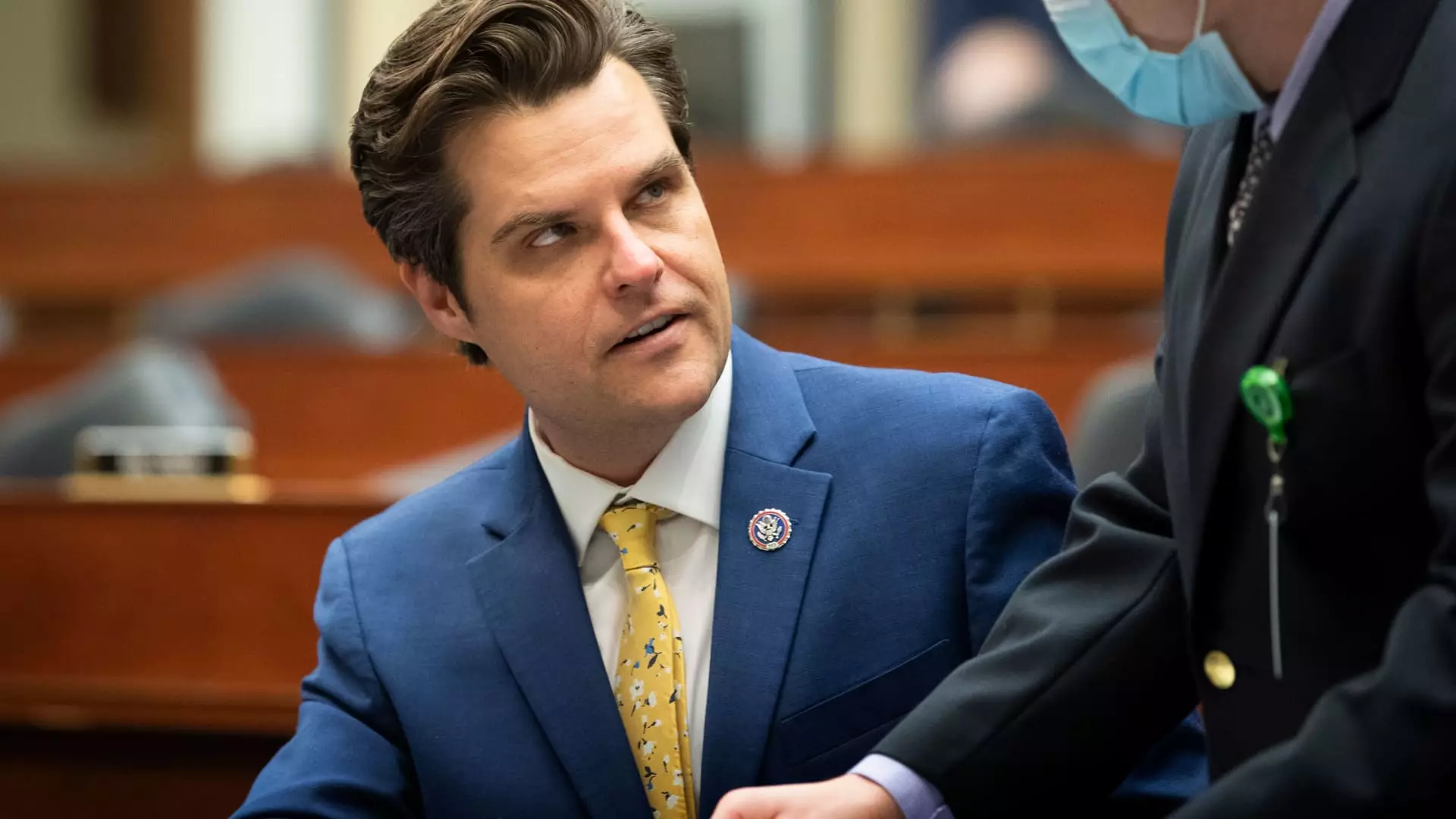The political landscape continues to grapple with the implications of misconduct allegations, as evidenced by the recent decision of the House Ethics Committee regarding former Republican Representative Matt Gaetz. The committee’s secret vote to release findings on accusations of sexual misconduct and illicit drug use marks a critical juncture in the ongoing saga surrounding Gaetz, who has faced scrutiny since these allegations came to light. As discussions about the implications of the report evolve, it is crucial to analyze the broader context and the potential fallout for all parties involved.
The House Ethics Committee exists to ensure that members of Congress adhere to ethical standards and to investigate allegations of misconduct. Typically, its workings are shrouded in a degree of secrecy, making the recent decision to release a report particularly noteworthy. After initially stalling in November, following Gaetz’s resignation, the committee’s shift to authorize the report signifies a potential departure from the usual protocol. Critics argue that the decision could undermine the integrity of the committee, as it reflects a willingness to publicly scrutinize a former member, raising questions about the validity and motivations behind such investigations.
The dissenting voices within the political sphere, particularly from Speaker Mike Johnson of Louisiana, highlight a notable division on this issue. Johnson cautioned that releasing findings against an individual no longer in office could establish a dangerous precedent, implying that the committee’s reports should remain confined to active members. This perspective aligns with the prevailing notion that the accountability of Congress should be internal and aimed at current representatives rather than extending the committee’s reach into the past.
In response to the Ethics Committee’s actions, Gaetz has vehemently defended himself, maintaining his innocence concerning the most serious accusations. His assertions that he has never engaged in sexual activities with minors have been underscored by his claims of being “exonerated” by the Department of Justice (DOJ). However, this stance raises complex questions about the intersection of personal behavior and public perception. Gaetz’s admission of past partying and excess brings to the forefront discussions about accountability, redemption, and whether such actions can overshadow genuine misconduct.
While it is understandable that Gaetz seeks to protect his reputation, the manner in which he has chosen to communicate his defenses—especially through social media—could be perceived as lacking the gravity the situation demands. The fact that he cites, in a dismissive tone, his interactions with women adds another layer of controversy; it risks trivializing the seriousness of the allegations and their implications.
One must consider how this situation impacts the oversight of Congress as an institution. The Ethics Committee’s reauthorization of the investigation into Gaetz emphasized a series of serious allegations regarding potential improprieties, including the acceptance of gifts and attempts to obstruct investigations. By proceeding with the report’s release, the committee asserts that no member is above scrutiny, thereby upholding the principle of ethical accountability that underpins legislative integrity.
However, as the committee balances its duty to investigate alongside the rights of individuals no longer serving, it carves out a complex path fraught with challenges. Will this lead to future investigations into past conduct once a member steps down? And if so, how might this affect the willingness of representatives to engage with their constituents and uphold transparency in their dealings? The answers to these questions will inform not only the legacy of this investigation but the operational norms of Congress moving forward.
Historically, the Ethics Committee has released reports on former members, as evident in the case of Rep. Bill Boner in 1987. Such precedents, while rare, demonstrate the potential for the committee’s reach to extend beyond the tenure of congressional members. However, the political climate has evolved significantly since those instances, and public expectations toward accountability have intensified. As the committee grapples with navigating its responsibilities in this context, it stands at the confluence of history and modern-day ethical standards.
The actions of the House Ethics Committee concerning Matt Gaetz encapsulate the complex interplay between personal conduct, institutional integrity, and political ramifications. As the report looms, dissecting its contents and the responses it elicits will be vital in shaping future ethical oversight within Congress. Ultimately, the aftermath of this investigation may serve as a cautionary tale about the boundaries of behavior and the importance of ethical vigilance among elected officials.

Leave a Reply